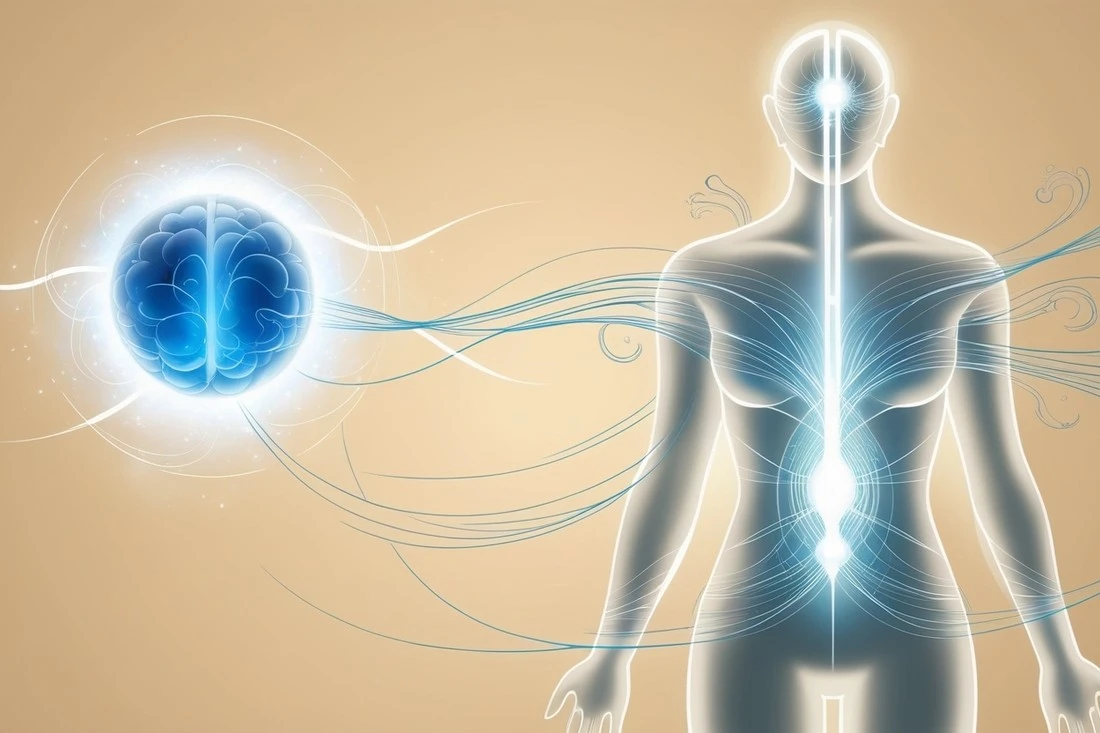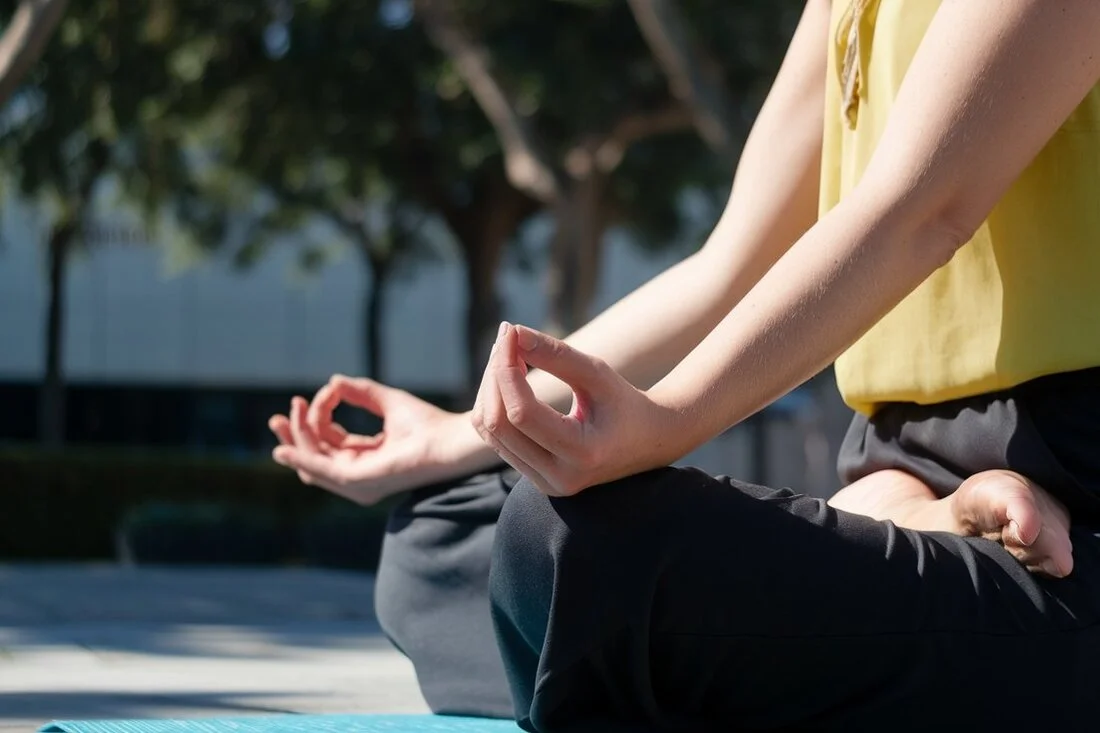In today’s fast-paced world, many of us focus on fitness, often overlooking the importance of holistic recovery in our overall wellbeing.
While approaches emphasize strength training and muscle repair, holistic recovery encompasses a broader spectrum of practices that both the body and mind.
Holistic recovery techniques recognize that our physical health is deeply interconnected with our mental and emotional states.

By adopting a more comprehensive view of recovery, we can enhance not only our physical performance but also our clarity, emotional resilience, and overall quality of life.
In this article we will explore various holistic recovery techniques that can help you achieve a balanced and fulfilling.
From mindfulness and nutrition to social connections and quality sleep, these practices offer valuable insights into how you can nourish your whole self.
Whether you’re an athlete looking to enhance performance or someone seeking to improve daily wellbeing, understanding and implementing these techniques can lead to transformative results.
Let’s dive into the world of holistic recovery and discover how these techniques can enhance your overall wellbeing.
Understanding Holistic Recovery

Holistic recovery is an approach that encompasses the entire spectrum of health, focusing on the interconnectedness of the mind, body, and spirit.
Unlike traditional recovery methods that primarily target physical symptoms, holistic recovery aims to nurture overall wellbeing through a variety of practices that support mind-body wellness.
What is Holistic Recovery?
At its core, holistic recovery is about treating the person as a whole rather than just addressing isolated issues.
It involves integrating practices such as mindfulness, nutrition, physical therapy, and emotional support to promote a balanced lifestyle.
The goal is to enhance not only physical health but also mental clarity, emotional resilience, and spiritual peace.
How It Differs from Traditional Methods
Traditional recovery methods often prioritize physical rehabilitation—like repair and injury prevention—without considering the mental or emotional aspects of wellbeing.
In contrast, holistic recovery recognizes that mental stress, emotional upheaval, and spiritual imbalance can significantly impact physical health.
By addressing these areas, holistic recovery offers a more comprehensive path to healing wellness.
The Interconnectedness of Physical and Mental Health
The relationship between physical and mental health is a crucial aspect of holistic recovery.
Stress and anxiety, for instance, can manifest as physical symptoms like tension and fatigue.
Similarly, physical ailments can lead to mental health challenges, creating a cycle that affects overall wellbeing.
By fostering practices that enhance both physical and mental health, such as meditation, proper nutrition, and community support, individuals can break this cycle and experience profound improvements in their quality of life.
Holistic recovery encourages a harmonious balance that nurtures every facet of one’s being, leading to a more fulfilling and resilient life.
In embracing holistic recovery, individuals can unlock the potential of mind-body wellness, paving the way for enhanced and genuine health.
Key Holistic Recovery Techniques

Mindfulness and Meditation
Mindfulness and meditation are powerful tools for enhancing mental clarity and managing stress.
By focusing on the present moment, these practices help reduce anxiety and promote a sense of calm.
Benefits:
- Improves focus and concentration
- Reduces stress and anxiety
- Enhances emotional resilience
Practical Tips:
- Set a few minutes each day for meditation, starting with guided sessions.
- Practice mindfulness during daily activities, like eating or walking, by paying attention to your senses.
Nutrition and Hydration
Nutrition plays a vital role in holistic recovery, fueling the body with essential nutrients that support healing and vitality.
Impact:
- Supports immune function and muscle repair
- Improves energy levels and mood
Key Nutrients and Strategies: -ate a variety of fruits, vegetables, lean proteins, and whole grains.
- Stay by drinking plenty of water and consuming foods with high water content.
Sleep and Rest

Quality sleep is crucial for recovery, allowing the body and to rejuvenate.
Importance:
- Facilitates muscle and cognitive function
- Strengthens the immune system
Techniques:
- Maintain a consistent sleep schedule.
- Create a restful environment by minimizing noise and light.
Physical Therapy and Massage

Physical therapy and massage aid in muscle recovery and relaxation, reducing tension and promoting flexibility.
Benefits:
- Enh circulation and reduces muscle soreness
- Promotes relaxation and stress reduction
Incorporation:
- Schedule regular massages or self-massage techniques.
- Incorporate stretching and strengthening exercises into your routine.
Breathing Exercises

Breathing exercises are simple yet effective methods for stress relief and boosting energy.
Introduction:
- Calms the nervous system and enhances focus
- Increases oxygen flow and energy
Simple Practices:
- Practice deep breathing exercises, like diaphragmatic breathing.
- Try techniques like box breathing for structured relaxation.
Social Connections and Community
Building strong social connections is essential for mental wellbeing.
Role:
- Provides emotional support and reduces feelings of isolation
- Encourages positive behaviors and accountability
Ways to Build Community:
- Engage in group activities or join clubs related to your interests.
- Foster relationships with friends and family through regular communication.
By incorporating these holistic recovery techniques, you can enhance your overall wellbeing, leading to a more balanced and fulfilling life.
Incorporating Holistic Techniques into Daily Life
Adopting holistic recovery techniques involves more than just occasional practice, it requires integrating these methods into your daily routine to truly benefit from their healing potential
Creating a personalized recovery plan and understanding the importance of consistency and adaptability are crucial steps in this process.
Creating a Personalized Recovery Plan
A personalized plan tailors holistic techniques to fit your individual needs, lifestyle, and goals. Here’s how you can create an effective plan:
- Assess Your Needs: Identify areas in your life that need improvement, such as sleep stress levels, or physical discomfort.
- Set Clear Goals: Define what you want achieve with your recovery plan, such as better sleep quality, reduced anxiety, or improved physical health.
- Choose Appropriate Techniques: Select holistic methods that address your goals. For instance, if stress reduction is a priority, focus on mindfulness, meditation, and breathing exercises.
- Schedule Regular Practices: Integrate these techniques into your daily schedule. Consistency is key to seeing benefits, so make these regular parts of your day.
- Monitor and Adjust: Keep track of your progress and make adjustments as needed. This flexibility will help you maintain your plan long term and adapt to changes in your lifestyle or objectives.
The Importance of Consistency and Adaptability
Consistency is vital in ensuring the effectiveness of holistic recovery techniques.
Regular practice helps to reinforce the benefits, making them more pronounced and sustainable over time.
By consistently incorporating practices like meditation nutrition, and adequate sleep into your daily routine, you can gradually enhance your overall wellbeing.
Adaptability plays a crucial role in maintaining and adjusting your recovery plan.
Life circumstances and needs can change, and your approach to recovery should be flexible enough to accommodate these changes.
For example, if you find that certain techniques are not providing the anticipated benefits, be open to exploring other options might be more effective.
Similarly, if new stressors arise, you may need to increase your focus on stress-management practices.
In conclusion, integrating holistic recovery techniques into your daily life is not a one-size-fits-all solution.
It involves a balance of careful planning, consistent practice, and the flexibility to adapt to changing needs.
By embracing these principles, you can build a balanced lifestyle that supports your ongoing recovery and overall wellbeing.
Frequently Asked Questions (FAQs)
What are holistic recovery techniques?
Holistic recovery techniques refer to a comprehensive approach to healing that addresses the mind, body, and spirit. These methods include practices such as mindfulness, meditation, proper nutrition, regular exercise, quality sleep, and social connection. Unlike traditional recovery methods that focus primarily on physical symptoms holistic techniques aim to enhance overall wellbeing by recognizing the interconnectedness of mental and physical health.
How do these techniques support muscle recovery?
Holistic recovery techniques support muscle in several ways:
- Mindfulness and Stress Reduction: reducing stress levels through meditation and breathing exercises, the body can recover more effectively, as stress can hinder the healing process.
- Nutrition: A balanced diet rich in essential nutrients aids in muscle repair and replenishment of energy stores, facilitating faster recovery.
- Quality Sleep: Adequate sleep is crucial for muscle recovery, allowing for regeneration and hormonal balance.
- Physical Therapy and Massage: These methods help alleviate muscle and promote circulation, further enhancing recovery. By taking a holistic approach, you can create an environment conducive to optimal muscle recovery.
Can I practice these techniques at home?
Absolutely! Many holistic recovery techniques can be easily practiced at home. Here are a few examples:
- Mindfulness and Meditation: Set aside a few minutes each day for meditation or mindfulness exercises. You can use apps or guided videos to get started.
- Nutrition: Prepare balanced meals that include a variety of fruits, vegetables, lean proteins, and whole grains. Stay hydrated by drinking plenty of water throughout the day.
- Sleep Hygiene: Create a calming bedtime routine, limit screen time before bed, and maintain a consistent sleep schedule to improve sleep quality
- Breathing Exercises: Practice simple breathing techniques, like deep breathing or box breathing, to help reduce stress and enhance focus. By incorporating these practices into your home routine, you can effectively support your holistic recovery journey.
Case Studies or Success Stories

Case Study 1: Sarah’s Journey to Stress-Free Living
Sarah, a 35-year-old marketing executive, faced chronic stress fatigue. By incorporating mindfulness and meditation into her daily routine, she found significant relief. Within months, her anxiety levels decreased, and she reported enhanced focus and productivity at work. This holistic approach allowed Sarah to achieve a healthier balance between her and professional life.
Case Study 2: John’s Muscle Recovery Transformation
John, an avid runner, struggled with muscle soreness and frequent injuries. He adopted a holistic recovery plan that included balanced nutrition, regular massages and proper hygiene. As a result, his recovery times shortened, and his performance improved. John now enjoys injury-free running and feels more energized.
Expert Opinions or Quotes
Dr. Emily Harris, a renowned wellness expert, emphasizes the importance of holistic recovery: “Holistic recovery techniques provide a comprehensive approach to health, addressing both physical and mental aspects. By nurturing the whole self, individuals can achieve sustainable wellbeing.”
Nutritionist Alex Chen highlights the impact of diet on recovery: “Proper nutrition is foundation of effective recovery. A diet rich in essential nutrients not only supports physical health but also boosts mental clarity and resilience.”
These insights from professionals add credibility and depth to our understanding of holistic recovery, underscoring its value in promoting overall health.
Disclaimer: The testimonials provided above are fictional and used for illustrative purposes only. While the results described are hypothetical, they are based on the principles and information presented in this blog post.
Resource List
For those interested in exploring holistic recovery techniques further, here are some valuable resources:
- Books:
- “The Mindful Athlete” by George Mumford – A guide to mindfulness for enhancing performance.
- “The Healing Self” by Deepak Chopra and Rudolph E. Tanzi – Insights self-healing through holistic practices.
- Websites:
- Mindful.org – Offers resources on mindfulness practices and meditation.
- NutritionFacts.org – Science-based information on nutrition for overall health.
- Articles:
- “The Benefits of Massage Therapy” by Mayo Clinic – Discusses how massage can aid in recovery.
- “Why Sleep Is the Ultimate Recovery Tool” from Nashville Physical Therapy – Offers guidelines for improving sleep hygiene.
Practical Tips for Implementation
Here are some simple ways to incorporate holistic techniques into your daily routine:
- Quick Mindfulness Exercises:
- Start your day with 5-minute meditation session using apps like Headspace or Calm.
- Practice mindful breathing by taking deep breaths whenever you feel stressed.
- Meal Prep Ideas:
- Plan balanced meals for the, focusing on whole foods like fruits, vegetables, and lean proteins.
- Prepare healthy snacks advance, such as mixed nuts yogurt with berries, to maintain energy levels.
- Guided Meditation Resources:
- Use YouTube for free guided meditation videos tailored to stress reduction or relaxation.
- Explore dedicated to mindfulness and holistic health for inspiration and guidance.
By integrating these practices into your routine, you can effectively support your holistic recovery journey and enhance overall wellbeing.
Social Media Sharing and Engagement
Encouraging community interaction can amplify the reach of your blog:
- Shareable Content:
- Create visually appealing quotes or snippets from the blog that can be shared on platforms like Instagram or Twitter.
- Develop short video clips or animations summarizing key points to engage learners.
- Community Engagement:
- Encourage readers to share their own holistic recovery experiences tips using a dedicated hashtag.
- Include social media sharing buttons within the blog to facilitate easy sharing, increasing visibility and fostering a community of like-minded individuals.
Conclusion
Holistic recovery techniques offer a comprehensive approach to enhancing overall health and wellbeing.
By integrating practices such as mindfulness, balanced nutrition, quality sleep, physical therapy, and social connections, individuals can nurture not only their physical bodies but also their mental and emotional states.
This interconnected approach helps create a balanced that promotes resilience reduces stress, and improves recovery times.
As you explore these methods, remember that the journey to holistic wellbeing is personal and unique.
Each technique can contribute to your overall recovery, and finding the right combination of practices for your lifestyle is key.
We invite you to share your own experiences or tips regarding holistic recovery techniques in the comments below.
Your insights could inspire others on their wellness journey!
Stay informed and empowered on your path to enhanced wellbeing!
Key Takeaways
- Holistic recovery techniques support both physical and mental health.
- Consistency and adaptability are crucial in integrating these practices into daily life.
- Community support and engagement can enhance your recovery journey.
- Every individual’s path to holistic wellness is unique; explore and find what works best for you.
By embracing these principles, you can cultivate a healthier, more balanced life that supports your overall wellbeing.
Related Posts
No posts
